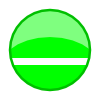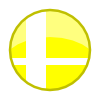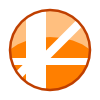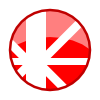Difficulty: Difference between revisions
No edit summary |
|||
| Line 1: | Line 1: | ||
{{ArticleIcons|ssb=positive|ssbm=positive|ssbb=positive|ssb4=positive}} | {{ArticleIcons|ssb=positive|ssbm=positive|ssbb=positive|ssb4=positive}} | ||
{{Image|SSB4 Intensity comparisons}} | |||
{{for|computer player difficulty settings|AI}} | {{for|computer player difficulty settings|AI}} | ||
[[File:Difficulty.jpg|thumb|250px|Choosing difficulty in the [[Subspace Emissary]] Adventure Mode in ''[[Brawl]]''.]] | [[File:Difficulty.jpg|thumb|250px|Choosing difficulty in the [[Subspace Emissary]] Adventure Mode in ''[[Brawl]]''.]] | ||
'''Difficulty''' is an option in some single player/[[co-op mode]]s that allows a player to adjust the game after one's skill. In the most cases, there are five difficulty levels. Depending on what mode is being played, different difficulty levels will affect the game in different ways. For example, a higher difficulty level in the [[Subspace Emissary]] will make the enemies harder by giving them more [[HP]] and making their attacks stronger, while a higher difficulty level in [[Target Smash]] won't affect the characters' properties at all, but instead change the stage's design into a more difficult one. Sometimes, [[unlockable]]s such as trophies or stickers depend on the difficulty on which a game mode is cleared. In the Subspace Emissary, [[Stock Ball]]s vary in number, from appearing in most levels in Easy to never appearing in Intense. | '''Difficulty''' is an option in some single player/[[co-op mode]]s that allows a player to adjust the game after one's skill. In the most cases, there are five difficulty levels. Depending on what mode is being played, different difficulty levels will affect the game in different ways. For example, a higher difficulty level in the [[Subspace Emissary]] will make the enemies harder by giving them more [[HP]] and making their attacks stronger, while a higher difficulty level in [[Target Smash]] won't affect the characters' properties at all, but instead change the stage's design into a more difficult one. Sometimes, [[unlockable]]s such as trophies or stickers depend on the difficulty on which a game mode is cleared. In the Subspace Emissary, [[Stock Ball]]s vary in number, from appearing in most levels in Easy to never appearing in Intense. | ||
| Line 35: | Line 34: | ||
== Difficulty levels in ''[[SSB4]]'' == | == Difficulty levels in ''[[SSB4]]'' == | ||
Difficulty levels were significantly overhauled in ''Smash 4''. The game's retooled Classic Mode features the '''Fiend's Scale''' to determine the game's difficulty. In this system, the player is able to select an intensity from 0.0 to 9.0, with higher intensities leading to harder fights, but more rewards; the default intensity is 2.0, and selecting other intensities requires some [[coin]]s, with each .1 increment costing the player a set number of coins depending on the intensity. | Difficulty levels were significantly overhauled in ''Smash 4''. The game's retooled Classic Mode features the '''Fiend's Scale''' to determine the game's difficulty. In this system, the player is able to select an intensity from 0.0 to 9.0, with higher intensities leading to harder fights, but more rewards; the default intensity is 2.0, and selecting other intensities requires some [[coin]]s, with each .1 increment costing the player a set number of coins depending on the intensity. | ||
| Line 82: | Line 80: | ||
|} | |} | ||
Every time the player loses, he or she is given the option to continue. If the player elects to continue, the intensity lowers by 0.5. Regardless of whether or not the player continues, some rewards attained in the Classic Mode will be lost, as will some coins on the Fiend's Scale. | Every time the player loses, he or she is given the option to continue. If the player elects to continue, the intensity lowers by 0.5. Regardless of whether or not the player continues, some rewards attained in the Classic Mode will be lost, as will some coins on the Fiend's Scale. The system is essentially identical to the {{s|icaruspedia|Fiend's Cauldron}} intensity system from [[Masahiro Sakurai]]'s previous game, ''Kid Icarus: Uprising'', including the same titles. | ||
The game's [[All-Star mode]] and [[Event Match]]es, however, use the traditional difficulties, though only three are available: Easy, Normal, and Hard. | The game's [[All-Star mode]] and [[Event Match]]es, however, use the traditional difficulties, though only three are available: Easy, Normal, and Hard. | ||
[[Category:Single Player Modes]] | [[Category:Single Player Modes]] | ||
Revision as of 17:33, March 16, 2015
Difficulty is an option in some single player/co-op modes that allows a player to adjust the game after one's skill. In the most cases, there are five difficulty levels. Depending on what mode is being played, different difficulty levels will affect the game in different ways. For example, a higher difficulty level in the Subspace Emissary will make the enemies harder by giving them more HP and making their attacks stronger, while a higher difficulty level in Target Smash won't affect the characters' properties at all, but instead change the stage's design into a more difficult one. Sometimes, unlockables such as trophies or stickers depend on the difficulty on which a game mode is cleared. In the Subspace Emissary, Stock Balls vary in number, from appearing in most levels in Easy to never appearing in Intense.
In Smash 64, the difficulty setting is only available for the 1P Game. In the other three games, the setting appears for the Classic Mode, Adventure Mode/Subspace Emissary and All-Star Mode. Additionally, in Brawl, the setting is available for Boss Battles, and has been added to Event matches and Target Smash!!. However, the event matches in Super Smash Bros. Brawl and Super Smash Bros. 4 only have three difficulties (Easy, Normal, and Hard).
Difficulty levels in Smash 64 and Melee
- Very Easy (blue difficulty)
- Easy (green difficulty)
- Normal (yellow difficulty)
- Hard (orange difficulty)
- Very Hard (red difficulty)
Difficulty levels in Brawl
- Easy (やさしい, Easy) (blue difficulty)
- Normal (ふつう, Normal) (green difficulty)
- Hard (むずかしい, Hard) (yellow difficulty)
- Very Hard (とてもむずかしい, Very Hard) (orange difficulty)
- Intense (ゲキむず, Extremely Hard) (red difficulty)
In Event Matches, only three difficulty levels are available: Easy (blue difficulty), Normal (green difficulty) and Hard (yellow difficulty).
Difficulty levels in SSB4
Difficulty levels were significantly overhauled in Smash 4. The game's retooled Classic Mode features the Fiend's Scale to determine the game's difficulty. In this system, the player is able to select an intensity from 0.0 to 9.0, with higher intensities leading to harder fights, but more rewards; the default intensity is 2.0, and selecting other intensities requires some coins, with each .1 increment costing the player a set number of coins depending on the intensity.
| Intensity level | Numeric values | Cost per 0.1 increment |
|---|---|---|
| Effortless | 0.0 to 0.9 | 5 coins |
| Easy | 1.0 to 1.9 | 5 coins |
| Standard | 2.0 to 2.9 | 8 coins |
| Tougher | 3.0 to 3.9 | 12 coins |
| Challenging | 4.0 to 4.9 | 15 coins |
| Heatin' Up | 5.0 to 5.9 | 20 coins |
| Extra Spicy | 6.0 to 6.9 | 25 coins |
| Infernal | 7.0 to 7.9 | 45 coins |
| White Hot | 8.0 to 8.9 | 95 coins |
| Nothing Harder! | 9.0 | N/A |
Every time the player loses, he or she is given the option to continue. If the player elects to continue, the intensity lowers by 0.5. Regardless of whether or not the player continues, some rewards attained in the Classic Mode will be lost, as will some coins on the Fiend's Scale. The system is essentially identical to the Fiend's Cauldron intensity system from Masahiro Sakurai's previous game, Kid Icarus: Uprising, including the same titles.
The game's All-Star mode and Event Matches, however, use the traditional difficulties, though only three are available: Easy, Normal, and Hard.






